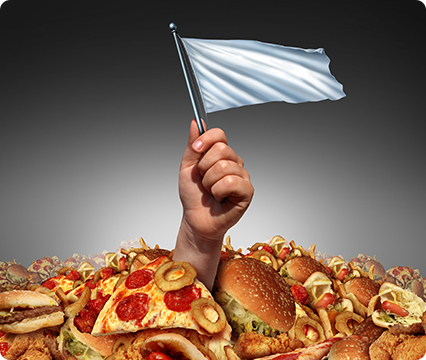What is food noise? A conceptual model of food cue reactivity
CNP Research Summary can be found in the CNP Library Membership


The CNP Diet, Craving, and Food Addiction Research Category explores the psychological, neurobiological, and behavioral interrelations underlying cravings, compulsive overeating, and consumption of highly palatable or ultra-processed foods, highlighting a bidirectional relationship between eating behaviors and dietary intake patterns. Join the CNP Library Membership to learn more.

This 2018 review presents the multifactorial social, neurobehavioral, and metabolic determinants of food intake that influence obesity risk to promote food craving and excessive food intake. The determinants included rewarding foods that stimulate brain reward motivation and stress circuits to influence eating behaviors, as well as stress hormones that hijack the brain’s emotional (limbic) and motivational (striatal) pathways. Sinha (2018) discusses the impact of high-stress levels and trauma, in addition to metabolic alterations such as higher weight, and altered insulin sensitivity, on self-control processes that regulate emotional, motivational, and visceral homeostatic mechanisms of food intake and obesity risk. Also reviewed was the potentially positive interaction between dynamic effects of neurobehavioral adaptations in metabolic, motivation, and stress neurobiology with food craving, excessive food intake, and weight gain. The author highlights key areas that require future investigation to adequately comprehend and address this growing obesity epidemic.
What is food noise? A conceptual model of food cue reactivity
CNP Research Summary can be found in the CNP Library Membership
Food knowledge, habits, practices, and addiction among adolescents: A cross-sectional investigation
Do restrained eaters show increased BMI, food craving and disinhibited eating? A comparison of the Restraint Scale and the Restrained Eating scale of the Dutch Eating Behaviour Questionnaire
It’s craving time: Time of day effects on momentary hunger and food craving in daily life
CNP Research Summary can be found in the CNP Library Membership
Food craving in daily life: Comparison of overweight and normal-weight participants with ecological momentary assessment
Obesity and sex-related associations with differential effects of sucralose vs sucrose on appetite and reward processing
CNP Research Summary can be found in the CNP Library Membership
Food addiction assessment in a non-clinical sample of the Italian population
Food cravings: Associations with dietary intake and metabolic health
CNP Research Summary can be found in the CNP Library Membership
The psychology of food cravings: the role of food deprivation